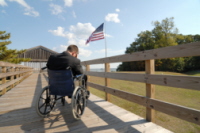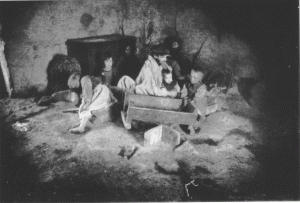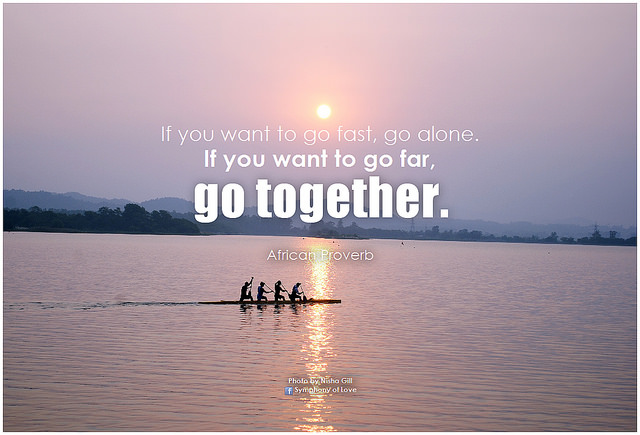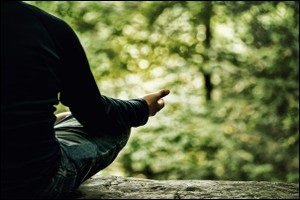Sebastian Junger’s “Tribe”
Sebastian Junger’s “Tribe” (https://amzn.com/0008168210) is a thought-provoking read about United States society and the problems caused by the introduction of isolation and separation to a population of people bred for tribal living.
There is an appeal to belonging to a small band of hunter-gatherers, and the simplicity of basic living without all of the material things in which we are immersed might be a relief. It would certainly be healthy for the planet. I also fully appreciate Junger’s point about the mental health issues fostered by our anonymous society and lack of social support structure for our warriors, and others.
Junger discusses the plight of soldiers returning from war to a society that doesn’t understand or value their experience of war, and contrasts that with returning Indian tribal members who are celebrated, honored, and tucked back into the fold – carried through the process of returning to life at peace.
I agree with Junger that our tribal ancestry may predispose us to need this type of support, and agree that the support would be healing and beneficial for all of us, and I think we can use the wisdom learned from tribal living and apply it to our benefit in modern life.
The book got me thinking about some issues, though. Junger discusses how many early English settlers ran off to join the bands of Indians and that none of the Indians wanted to join the English. I question whether this is really due to preference for tribal society. The settlers had a hard life, and much of it was new and frightening, and they had very restrictive moral codes that allowed them no pleasure. The combination must have made life very unsatisfying. Perhaps adventure, pleasure-seeking and freedom from responsibility and uncertainty played a larger role in the move to tribal living for these settlers. The tribes had everything set up, so there was a sense of safety and security there, and they could relax. And why would the Indians want to join the settlers? The settler’s society was very much more restrictive than their own. And, frankly, would the settlers have accepted the Indians? I doubt it.
I also question whether the ability of Indian warriors to recover from their battle experiences can be attributed so much to tribal togetherness and shared experience, or whether the credit should be given to the fact that tribal Indians prepared their people for dealing with life, in war and in peace. Our society does not. We have a strange thing going on in our society where we show our children a fairy tale world of safety, and tell them lies about life and how we will keep them safe and take care of them. We shield them from reality and don’t allow them to take risks or hurt themselves, or ever be out of our sight, and then expect them to be able to face real life, which is nothing like that. And those that join the military go out to war, when they aren’t even prepared for riding a dirty bus without a bottle of hand sanitizer, or being lost on a college campus without a map app on their mobile phone. How could that ever work out? People need to wake up. Life is not safe, fair or pain-free and, more importantly, it isn’t supposed to be. We don’t even want that. We need to feel alive, which involves conflict and winning and pain and joy and heartache, and we need to learn to embrace it all and share it with our children and our community.
The question we need to ask is why did we we diverge from our tribal roots in the first place? The tribal society is not for everyone. Some of us are not content with the tribe and strike out on our own to start our own tribe. There are those who have different ideas from others in the tribe – the innovators, and those who  want to operate in ways not accepted by the tribe – the non-conformists, and those who see something outside of the tribe that they must have – the dreamers. Some have an internal desire, perhaps need, for independent thought and free action. These are the people who diverged from the tribe and began creating different types of communities.
want to operate in ways not accepted by the tribe – the non-conformists, and those who see something outside of the tribe that they must have – the dreamers. Some have an internal desire, perhaps need, for independent thought and free action. These are the people who diverged from the tribe and began creating different types of communities.
So, how can we use our tribal history to enrich and heal our lives today? Perhaps we can reclaim the best of our past and cherish the best in our present world at the same time. Tribal living and individuality are both valuable. Maybe now that we have gone so far toward separation, it is time for a course correction, to come full circle. We could definitely use some of the principles of tribal living in our world. I think this is happening at the community level in some places, and  needs to happen in more places. Small groups of people need to gather and take responsibility for each other. The nuclear family is too small and often too dysfunctional to support and nurture its members; the circle must be wider. Similarly, the government level is too broad, stifling individual voices and breeding corruption.
needs to happen in more places. Small groups of people need to gather and take responsibility for each other. The nuclear family is too small and often too dysfunctional to support and nurture its members; the circle must be wider. Similarly, the government level is too broad, stifling individual voices and breeding corruption.
Let’s start a plan today! Any ideas?









